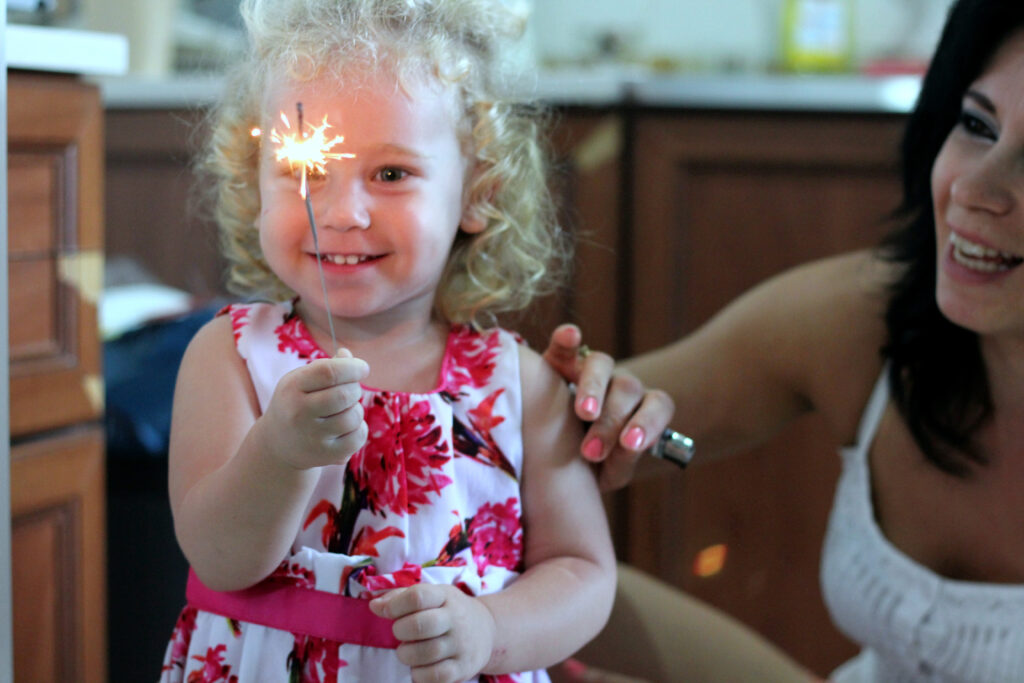Celebrate Good Times: Best Birthday Ideas for Kids at Every Age

There’s something magical about birthdays when you’re a child—the anticipation, the cake, the laughter, and of course, the feeling of being celebrated just for being you. As a parent walking the path of mindful parenting, I’ve come to realize that birthdays are more than parties—they’re milestones in your child’s emotional and developmental journey. Planning the perfect birthday doesn’t have to mean hiring clowns or breaking the bank. Instead, it’s about creating age-appropriate moments that honor your child’s personality, growth, and connection with family. Through the lens of the conscious parent, birthdays become opportunities for bonding, gratitude, and reflection. Whether you’re planning for a curious toddler, an imaginative school-aged child, or an independent tween, here are the best birthday celebration ideas by age, rooted in joy, presence, and a touch of creativity. 1. Toddlers (Ages 1–3): Keep It Simple, Sensory & Sweet Let’s be honest—toddlers are more interested in balloons and cupcakes than guest lists and themes. For this age group, focus on toddler activities that are sensory-rich and interactive. Top Ideas: Keep in mind that toddlers may get overstimulated easily. Choose shorter party durations and stick to nap-friendly times. Encourage small moments of connection during the day—an impromptu cuddle, a singalong, or a storybook session from the best parenting books you already love. Bonus tip: Involve siblings using positive discipline strategies for toddlers so that they feel part of the celebration rather than left out. 2. School-Aged Kids (Ages 4–8): Let Creativity Lead the Way This is the golden era of themed birthdays—dinosaurs, space, princesses, superheroes! But beyond aesthetics, this age is also about nurturing identity, friendships, and imagination. Top Ideas: This is also a great age to start holding mini family meetings during birthday planning to include your child’s preferences and ideas. It fosters emotional regulation kids need when navigating group dynamics and excitement. And remember: Not everything has to go “Pinterest-perfect.” Kids mostly remember how they felt, not how the table was set. 3. Tweens (Ages 9–12): Empower Independence and Expression As kids get older, birthdays are about celebrating identity, independence, and peer connection. Your role as the conscious parent here is to support their need for autonomy while creating boundaries that reflect your family values. Top Ideas: Let them co-create the guest list and schedule. Teach them how to express needs respectfully using nonviolent communication, and use the event as a way to strengthen your conscious co-parenting model (especially if you’re coordinating with another household, like Conscious Co-Parenting NJ advocates). It’s also a beautiful moment to reflect together on their year—what they’ve learned, loved, and look forward to. That reflection is a cornerstone of holistic child development. 🎉 Final Thoughts: Make It Memorable, Not Just Magical At the end of the day, your child won’t remember the cake’s design or the party bags. But they will remember how safe, seen, and celebrated they felt. That’s the essence of how to implement conscious parenting techniques at home—presence over performance. So whether it’s a cozy backyard picnic or a themed bash, the real win is nurturing joy and togetherness in a way that reflects your values as a family. 🎈 Birthday Tip: Ask your child what their “favorite part” of the day was—this sparks gratitude, strengthens memory recall, and creates a sweet annual tradition. 📱 Stay Connected: Need more ideas for parenting celebrations, rituals, and routines that support your child’s growth? Follow us on Instagram, and YouTube for family insights, expert tips, and conscious living strategies. For the latest news and updates, click here to view our recent press releases.
What I Didn’t Know About Raising Emotional Kids

When I first became a parent, I stocked up on all the essentials—crib sheets, bottles, best parenting books, and baby monitors that practically came with a PhD. What I didn’t prepare for? The day my toddler burst into tears over the “wrong” spoon. Or the time they asked, “Why are you sad, Mommy?” at the exact moment I was trying to hold it all together. Raising emotionally sensitive children isn’t something we talk about enough. It’s not just about meltdowns and tantrums. It’s about understanding what it means to raise tiny humans who feel deeply, and learning how to support their emotional development with patience, love, and a whole lot of inner work. If you’ve ever found yourself overwhelmed, uncertain, or just plain exhausted from trying to navigate your child’s emotional world—you’re not alone. Here’s what I wish I knew earlier, and what I’ve learned through the lens of mindful parenting and becoming the conscious parent. 1. Emotional Outbursts Aren’t Misbehavior—They’re Communication One of the biggest mindset shifts I had to make was seeing emotional outbursts as messages, not misbehavior. When my child screamed, cried, or withdrew, it wasn’t to “get attention.” It was to ask for connection. These weren’t moments to shut down or “fix” them—they were chances to lean in and practice active listening parenting. According to child psychologists and many child development specialists, early emotional responses are rooted in survival instincts. Kids haven’t developed the vocabulary or brain maturity to explain what’s going on inside. That’s where we step in—not to silence them, but to help translate and support. A helpful practice? Label their emotions as they arise: “You’re feeling really frustrated because your blocks fell.” This strengthens their emotional vocabulary, which is crucial for long-term emotional regulation kids development. 2. Your Calm Is Contagious I used to think I had to match my child’s emotional intensity with equally strong reactions—“Stop crying!” or “Calm down right now!” But the truth is, our calm is their compass. If we escalate, they escalate. If we breathe, they begin to breathe. That’s why I found solace in techniques from nonviolent communication and conscious co-parenting frameworks. These helped me pause, check my own triggers, and model the emotional regulation I wanted them to learn. In fact, a recent study from the University of Michigan found that children who regularly observe their parents navigating conflict calmly are more likely to exhibit empathy and resilience later in life. It’s one of the hidden benefits of mindful parenting for child development—they don’t just learn how to manage emotions; they witness how to do it with grace. 3. Routine and Rituals Create Emotional Safety One of the most underrated tools in raising emotional kids? Predictability. Whether it’s a nightly storytime, a morning hug, or our Sunday family meeting, these touchpoints give kids emotional anchors. In a world that often feels big and chaotic, rituals become their safe space. In our home, we also use positive discipline strategies for toddlers that reinforce connection before correction. This means I try to understand the “why” behind a behavior before jumping to punishment or consequence. It’s not about letting go of boundaries—it’s about enforcing them with empathy. These strategies are also backed by research from Harvard’s Center on the Developing Child, which shows that consistent, nurturing relationships are key to holistic child development. Final Thoughts: Emotional Kids Need Emotionally Present Parents Raising an emotionally aware child isn’t about “fixing” their feelings—it’s about creating the kind of home where all emotions are welcome, but not all behaviors are acceptable. It’s a delicate dance. But when we step into it with intention, we give our children the tools to understand themselves and the world. And that starts with us. 💡 Try This at Home: Create an “Emotion Check-In Chart” on your fridge. Each morning or evening, take turns sharing how you feel using colors or emojis. This builds emotional awareness for the whole family. 📱 Stay Connected: We’re here to support your parenting journey, one honest moment at a time. 👉 Follow us on Instagram, and YouTube for real stories, conscious parenting tools, and expert advice. 📰 For the latest news and updates, click here to view our recent press releases.
Not a PTO Parent? Engaging in Your Child Education on Your Terms

Parental involvement is a cornerstone of a child’s academic success. While some parents immerse themselves in Parent-Teacher Organizations (PTOs), this level of engagement isn’t feasible or desirable for everyone. The good news is that there are numerous meaningful ways to support your child educational journey without committing to PTO activities. This article explores practical strategies for parents who wish to be involved on a smaller, yet impactful, scale. 1. Establish a Supportive Home Learning Environment Creating a conducive atmosphere at home is pivotal for reinforcing the value of education. This doesn’t necessitate a complete overhaul; simple, consistent practices can make a significant difference: 2. Foster Open Communication with Educators Building a collaborative relationship with your child’s teachers provides valuable insights into their academic progress and social development: 3. Engage in Meaningful Conversations and Activities Your involvement in your child education extends beyond academics; nurturing their emotional and social well-being is equally important: Conclusion: Your Involvement Matters Active parental involvement, tailored to your capacity and preferences, significantly influences your child educational journey. By creating a supportive home environment, maintaining open communication with educators, and engaging in meaningful activities, you lay a strong foundation for their success. Remember, it’s not about the quantity of involvement but the quality and consistency that make the difference. Tip: Regularly set aside time for family meetings to discuss upcoming school events, address any concerns, and celebrate achievements. This practice reinforces the importance of education and keeps everyone aligned. For more insights and expert advice on parenting and child development, follow us on Instagram, and YouTube. Stay informed with our latest updates and press releases by clicking here.
Fireworks and Family Fun: Fourth of July Activities for the Whole Family

The Fourth of July is a cherished time for families across the United States to come together and celebrate independence with joy and unity. This holiday offers a perfect opportunity to engage in activities that are not only fun but also enriching for family members of all ages. Embracing mindful parenting during this festive period ensures that the experiences are both enjoyable and meaningful. Engaging Toddler Activities for Independence Day Celebrating the Fourth with toddlers can be both fun and educational. Here are some activities tailored for the little ones: 1. Patriotic Crafts Engage your toddlers in simple crafts like creating American flags using safe materials. This activity enhances their creativity and introduces them to national symbols. 2. Sensory Bins Create sensory bins filled with red, white, and blue items such as colored rice or beads. This tactile experience can captivate toddlers and stimulate their senses. 3. Story Time Reading age-appropriate books about Independence Day can be both educational and entertaining. Consider titles like “The Night Before the Fourth of July” to introduce them to the holiday’s significance. Activities for Older Children Older kids can participate in more structured activities that combine fun with learning: 1. DIY Fireworks in a Jar A safe and educational science experiment where children can create a fireworks effect using oil, water, and food coloring. This activity teaches basic scientific principles in a festive context. 2. Patriotic Scavenger Hunt Organize a scavenger hunt in your backyard or local park with items related to Independence Day. This promotes physical activity and teamwork. 3. Baking Together Involve children in baking red, white, and blue treats. This not only teaches them basic cooking skills but also allows for family bonding. Family Activities to Foster Unity Engaging in activities as a family strengthens bonds and creates lasting memories: 1. Family Picnic Plan a picnic with traditional Fourth of July foods. Use this time to discuss the history of Independence Day, making it both a fun and educational experience. 2. Attend Local Parades Participating in or attending local parades can instill a sense of community and patriotism. It’s also an opportunity to teach children about civic pride. 3. Evening Fireworks Watching fireworks together can be a magical experience. Ensure safety by choosing a suitable viewing spot and discussing firework safety with children beforehand. Incorporating Mindful Parenting During Festivities The excitement of the Fourth can sometimes lead to overstimulation, especially for younger children. Practicing mindful parenting helps in maintaining a calm and enjoyable environment: 1. Maintain Routine While it’s a special day, keeping certain routines like nap times can help toddlers remain comfortable and happy. 2. Active Listening Pay attention to your child’s cues. If they seem overwhelmed, provide a quiet space for them to relax. 3. Inclusive Decision Making Involve children in planning activities. This not only makes them feel valued but also teaches decision-making skills. Conclusion The Fourth of July is more than just a holiday; it’s an opportunity to strengthen family bonds, teach valuable lessons, and create cherished memories. By incorporating a mix of fun and educational activities, and practicing mindful parenting, families can ensure a harmonious and joyous celebration. Tip: Create a family time capsule on the Fourth of July. Each member can contribute an item or note, and it can be opened the following year to reflect on growth and experiences.For more insights and parenting tips, follow us on Instagram, and Youtube.
Fess Up to Failures: Why Vulnerability in the Parenting Community is Healthy

Parenting is a journey filled with joy, challenges, and countless learning experiences. While society often glorifies the picture-perfect family, the reality is that every parent faces moments of doubt, mistakes, and growth. Embracing vulnerability within the parenting community not only fosters genuine connections but also promotes personal and communal well-being. The Pressure of Perfection In today’s digital age, parents are inundated with images of flawless families and well-behaved children. This constant exposure can lead to feelings of inadequacy and the pressure to conform to unrealistic standards. A recent study revealed that 40% of parents admit to judging other families’ screen time rules, highlighting the pervasive nature of parental scrutiny. Moreover, societal expectations often discourage parents from sharing their struggles, leading to isolation. The U.S. Surgeon General has labeled parental stress an urgent public health issue, emphasizing the need for supportive communities where parents can openly discuss their challenges. The Power of Vulnerability Embracing vulnerability involves acknowledging and sharing one’s struggles and imperfections. For parents, this means openly discussing challenges, mistakes, and uncertainties. Such openness has profound benefits: A 2023 survey highlighted that 41% of parents feel so stressed they cannot function most days, underscoring the importance of supportive communities. Building a Supportive Parenting Community To cultivate a nurturing environment where vulnerability is embraced, consider the following strategies: 1. Establish Open Forums Create spaces, both online and offline, where parents can share their experiences without fear of judgment. These platforms encourage open dialogue and mutual support. 2. Promote Active Listening Encourage parents to practice active listening parenting, where they attentively and empathetically listen to others’ experiences, fostering understanding and connection. 3. Organize Family Meetings Regular family meetings provide opportunities for family members to express their feelings and challenges, promoting transparency and unity within the household. 4. Engage Child Development Specialists Consulting with a child development specialist can offer parents professional guidance, helping them understand and address their children’s needs effectively. 5. Practice Mindful Parenting Mindful parenting encourages parents to be present in the moment, acknowledging their feelings and reactions. This practice enhances self-awareness and emotional regulation. Embracing Failures as Learning Opportunities Viewing failures as opportunities for growth transforms challenges into valuable lessons. This perspective shift not only benefits parents but also sets a powerful example for children, teaching them resilience and adaptability. Tip: When facing a parenting challenge, reflect on the experience to identify lessons learned and share these insights with your community. Conclusion Embracing vulnerability within the parenting community fosters authentic connections, reduces stress, and promotes collective growth. By acknowledging and sharing our imperfections, we create a supportive environment where both parents and children can thrive.For more insights and support, don’t forget to follow us on Instagram, and Youtube for more insights and expertise.
Shut it, Sheila: How to Ignore the Haters and Lean into Your Own Parenting Style

In today’s world, where every parenting style is under the microscope, it’s common to encounter unsolicited advice or outright criticism. Whether it’s about your choice of toddler activities, discipline methods, or educational preferences, there’s always someone ready to offer their two cents. But here’s the truth: You know your child best. Embracing your unique parenting style, despite the naysayers, is crucial for your family’s well-being. Understanding the Spectrum of Parenting Style Parenting isn’t one-size-fits-all. Various styles cater to different family dynamics and children’s needs: 1. Authoritative Parenting ✔️ Combines warmth with structure, promoting independence while setting clear boundaries. 2. Authoritarian Parenting ✔️ Emphasizes strict rules with little room for flexibility, often leading to obedience but potentially lower self-esteem in children. 3. Permissive Parenting ✔️ Offers warmth with minimal rules, which can result in children lacking discipline. 4. Uninvolved Parenting ✔️ Characterized by a lack of responsiveness to a child’s needs, leading to attachment issues. Recognizing where you fall on this spectrum can help you understand your strengths and areas for growth. The Rise of Gentle and Conscious Parenting Recent years have seen a shift towards gentle and conscious parenting approaches. These methods emphasize empathy, understanding, and respect for a child’s individuality. While some critics argue that such styles may lack discipline, proponents believe they foster emotional regulation in kids, stronger parent-child bonds, and overall well-being. Dealing with Criticism: Strategies for Resilience Facing criticism is an inevitable part of the parenting journey. Here’s how to navigate it: 1. Trust Your Instincts 💡 You are the expert on your child. Your insights and understanding of their needs are unparalleled. 2. Seek Constructive Feedback 💡 Differentiate between genuine advice and unsolicited criticism. Engage with those who offer support and understanding. 3. Set Boundaries 💡 It’s okay to politely decline discussions that don’t serve your family’s interests. 4. Educate and Inform 💡 Share the rationale behind your choices with well-meaning critics. This can foster understanding and reduce unwarranted judgments. 5. Build a Support Network 💡 Connect with like-minded parents through family meetings, support groups, or online communities. Sharing experiences can provide validation and encouragement. The Role of Mindful and Conscious Parenting Embracing mindful parenting involves being present and attentive to your child’s needs, fostering a deeper connection. This approach encourages parents to respond rather than react, promoting a calm and nurturing environment. Similarly, the conscious parent philosophy emphasizes self-awareness, allowing parents to address their own emotions and biases, leading to healthier interactions with their children. The Impact of Criticism on Parenting Constant criticism can lead to self-doubt and stress, affecting both parent and child. It’s essential to recognize the potential harm of negative feedback and prioritize your family’s unique needs over societal expectations. By implementing positive discipline strategies for toddlers and focusing on the benefits of mindful parenting for child development, parents can cultivate a household where confidence and trust thrive. Conclusion: Embrace Your Parenting Journey Every child is unique, and so is every parenting journey. By trusting your instincts, setting boundaries, and embracing your chosen parenting style, you create a nurturing environment tailored to your child’s needs. 💡 Tip: Engage in regular family meetings to discuss feelings, set goals, and strengthen bonds. This practice fosters open communication and mutual respect. For more insights and support, don’t forget to follow us on Instagram, and Youtube for expert advice on how to implement conscious parenting techniques at home.For the latest news and updates, click here to view our recent press releases.
Reorienting with Respectful Parenting: A Path to Connection and Harmony

Parenting can sometimes feel like an endless cycle of tantrums, arguments, and raised voices. It’s easy to get caught up in the whirlwind of emotions, leaving both parents and children feeling disconnected and frustrated. But what if there was a gentler, more intentional approach to breaking this cycle? Enter respectful parenting, a philosophy that emphasizes empathy, understanding, and connection without compromising structure or boundaries. What is Respectful Parenting? Respectful parenting is not about being permissive or letting children “get away” with everything. Instead, it’s about fostering a deep, mutual respect between you and your child. Unlike traditional authoritative approaches, respectful parenting encourages mindfulness and emotional intelligence, focusing on the child’s needs and emotions while guiding them through life’s challenges. At its core, respectful parenting emphasizes mindful parenting. By staying present in the moment, you become more aware of both your reactions and your child’s behaviors. This approach cultivates a stronger bond between parent and child, based on trust rather than fear or control. Respectful parenting is not a “hands-off” method; it’s a deeply intentional way of engaging with your child, allowing them the space to grow and develop while maintaining clear and compassionate boundaries. Breaking the Cycle of Tantrums and Yelling One of the most appealing aspects of respectful parenting is its ability to break the cycle of tantrums and yelling. If you’re stuck in a pattern of constant power struggles, reorienting yourself with respectful parenting can be a game-changer. Instead of reacting with frustration or anger, respectful parenting encourages you to take a step back and acknowledge your child’s feelings without judgment. Imagine this: Your toddler is in the middle of a meltdown because they can’t have a toy at the store. Instead of saying, “Stop crying! You’re not getting the toy,” a respectful parenting response might sound like, “I see you’re really upset because you want the toy, but we’re not buying it today.” By acknowledging their emotions, you validate your child’s experience, making them feel heard, which can often de-escalate the situation faster than demanding compliance. This is where parent-child bonding becomes crucial. When children feel that their emotions are respected and understood, they’re more likely to engage positively with you. This doesn’t mean you’re giving in to every whim; it means you’re nurturing their emotional intelligence while still maintaining your role as a guide. Respectful Parenting is Intentional Parenting Many parents fear that a more respectful approach will lead to permissiveness, where the child “rules” the household. However, respectful parenting and conscious parenting are deeply rooted in intentionality. It’s about making conscious decisions in how you interact with your child. You’re not just reacting to situations; you’re thinking ahead about the long-term goals of your parenting choices. For example, during family meetings, respectful parenting can help children feel included in decision-making processes. These meetings become a place where children can express their thoughts and feelings, fostering open communication. This sets a foundation for mutual respect that extends beyond the immediate moment. It’s about balancing empathy with limits—helping your child understand their boundaries in a loving, supportive way. Using Respectful Parenting in Everyday Life The principles of respectful parenting can be applied in daily routines, from managing bedtime routines to navigating sibling conflicts. By engaging in activities for toddlers that encourage cooperative play, you allow your child to learn important social skills in a low-pressure environment. These activities not only build confidence but also reinforce the value of working together and respecting others’ boundaries. Online resources and child development classes can also be incredibly useful for parents wanting to dive deeper into respectful parenting. Many of these programs offer guidance on how to implement mindful practices in a way that fits the busy American lifestyle. The Role of Social Media in Spreading Respectful Parenting We live in a digital age, and social media has become an important tool for connecting with other like-minded parents. Following parenting experts on platforms like Instagram and YouTube can provide valuable daily inspiration and tips. For instance, our website’s Instagram page is filled with real-life examples of respectful parenting in action, offering practical solutions for common challenges like bedtime battles, mealtime struggles, and sibling rivalry. Meanwhile, our YouTube channel features in-depth tutorials and interviews with child development specialists, providing parents with a rich, visual learning experience. These social media pages serve as a supportive community where you can connect with other parents, share stories, and get advice on implementing respectful parenting in your own home. Start Your Journey Today! Respectful parenting is more than a method—it’s a mindset shift that helps break the cycles of frustration and disconnection. It’s about fostering an environment where both parents and children can thrive emotionally and mentally, developing stronger, healthier relationships in the process. Whether you’re just beginning to explore conscious co-parenting or looking to integrate more family well-being practices into your home, respectful parenting offers a roadmap to success.Ready to take the next step? Visit our website to learn more, and don’t forget to follow us on Instagram and YouTube for ongoing tips, tools, and insights that will empower your parenting journey. Let’s transform the way we parent—together.

